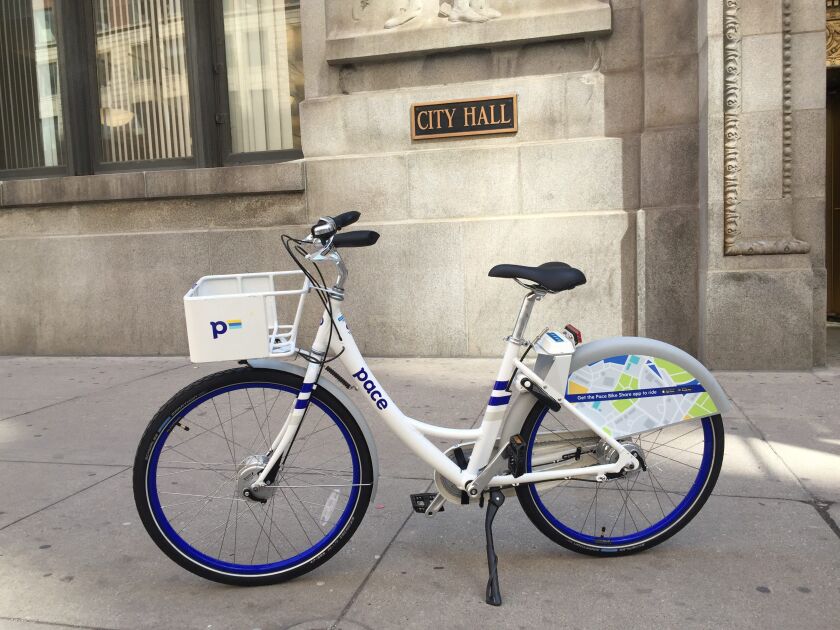Two dockless bike-share companies put a total of 100 bikes into circulation on the South Side on Tuesday as part of a six-month pilot program.
The boundaries where the bikes are permitted: 79th Street to the north, 138th Street to the south, the Skyway to the east and Pulaski Road to the west.
The area, for the most part, has been a bike-sharing desert — devoid of the city-owned blue Divvy bikes and the curbside docking stations where they reside between rides.
Bikes under the pilot program are nomadic. They have no docking station homes. They’ll be parked willy-nilly around town.
LimeBike, which is based in San Mateo, Cal, released 50 bikes to enthusiastic riders Tuesday morning from the parking lot of County Fair Foods, 10800 South Western Ave.
The company invites customers to unlock and pay for the bikes using a smartphone app. When finished, snap a locking mechanism on the rear tire and leave the bike wherever.
The price: $1 dollar to unlock the bike and 15 cents per minute to ride. Each bike is equipped with electric assist, which automatically provides a power boost during especially exhaustive pedaling, such as uphill or into the wind.
However, starting in July, the city will not allow vendors to leave bikes anywhere. A requirement will kick in that calls for all the bikes to be locked to a fixed object, such as a street sign.
The rule arose out of right-of-way concerns, such as bikes being left in the middle of sidewalks.
Gabriel Cheer, LimeBike’s director of strategic development, couldn’t say whether the company will opt out of the program at the cutoff or retrofit their bikes with new locks.
“I don’t have an answer for you right now,” he said. “But we’re very excited to prove our model over the next couple months.”
Ald. Matt O’Shea (19th) said he was “beyond excited” the program was kicking off.
“Divvy never made it this far south. So we had to take things in to our hands,” O’Shea said.
LimeBike operates in more than 50 U.S. cities, including St. Louis, Rockford and South Bend.
Boston-based Zagster is the other company that began operating Tuesday. It deposited 50 “Pace” bikes at bike racks.
The bikes, also accessed through a smart phone app, each have cable locks customers can use to lock them to fixed objects.
The cost: $1 per 30 minutes. The company plans to add 200 more bikes to their Chicago fleet in the coming weeks.
Zagster operates in about 100 U.S. cities, a spokeswoman said.
“The program could contribute to more and better bike sharing,” said Ron Burke, who heads up the Active Transportation Alliance, a transportation advocacy group for pedestrians and cyclists. “But we need to get the policy right.
Burke’s fear: for-profit companies will offer low-ball prices and drive Divvy out of business, which would allow the companies to raise prices and operate only in profitable parts of the city.
Chicago Department of Transportation spokesman Mike Claffey said the city was processing applications from several other ride-sharing companies that want to participate in the pilot program.
The program’s goal is “to learn how dockless bike share can complement existing transportation options,” according to a city statement.






